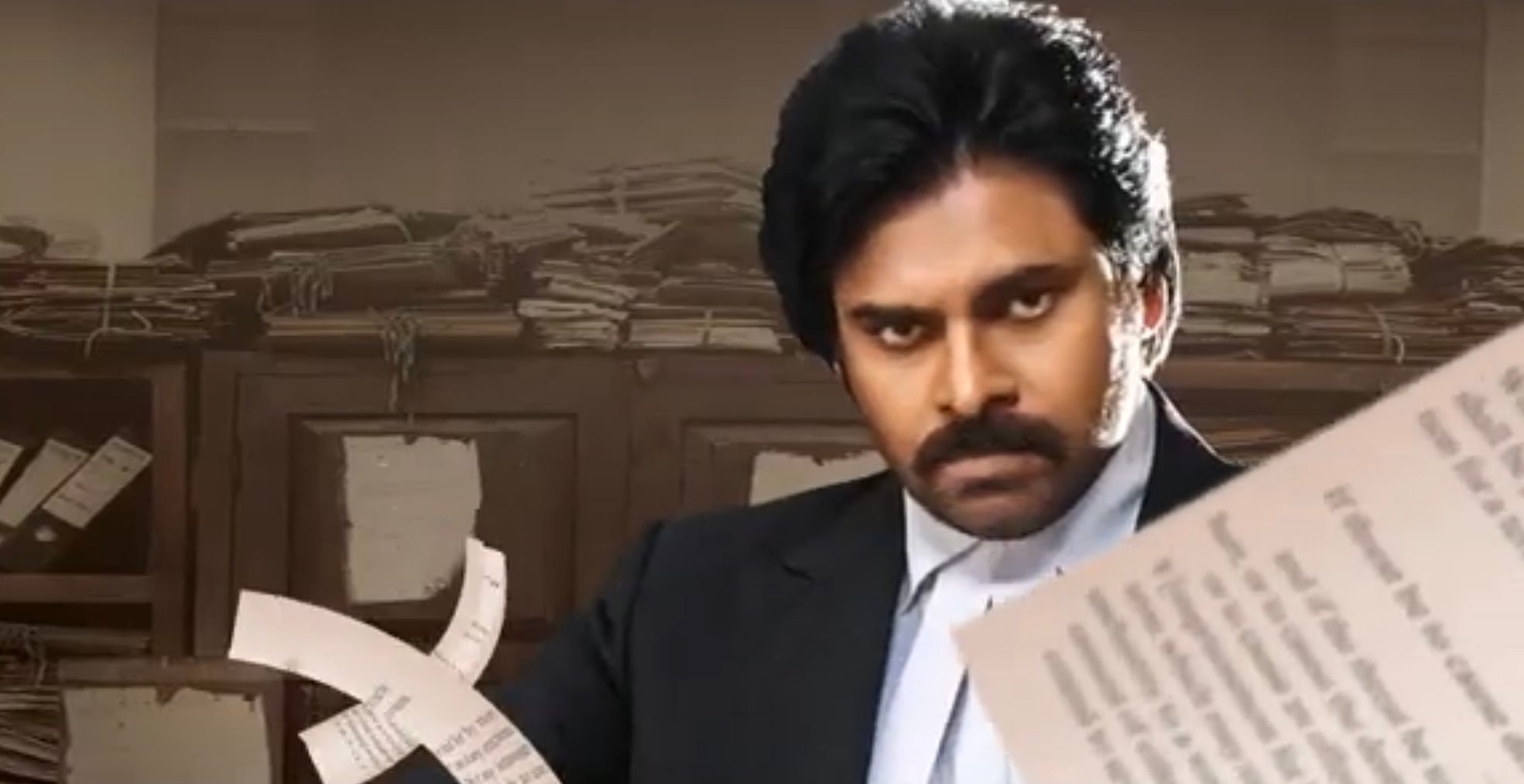
Five years ago, watching ‘Pink’ in a cinema hall was an immersive emotional experience. The hard-hitting, poignant Hindi film by Aniruddha Roy Chowdhury left many sad, angry and pondering over how society views women.
Cut to 2021 and sitting through ‘Vakeel Saab’, the Telugu remake of ‘Pink’, wasn’t easy. With delirious fans cheering their favourite superstar Pawan Kalyan, the theatre witnessed a celebratory atmosphere.
Amid the sound of whistles, the intention of the original died a quiet death. The film is touted to be the biggest ever hit in Pawan’s career. A star is crucial to a film’s box-office success, no doubt. It is also an indictment of how filmmakers continue to dilute stories of women to boost the image of superstars.
Directors defend the lack of soul in remakes by saying ‘they tweaked the story to suit the taste of the concerned audience’. ‘Vakeel Saab’ is tone-deaf and poorly represents independent women.
Ahead of the release of ‘Pink’, its writer Shoojit Sircar had said it’s silly to call the film ‘women-oriented’. “So if the main lead is a male, do we call the film male-oriented”? he had asked. Shoojit’s realistic and sensitive writing is the biggest strength of ‘Pink’.
In the film, three women in Delhi face threats and emotional trauma from affluent men. One of the women is even molested and wrongly framed for a crime. A veteran lawyer (Amitabh Bachchan) comes to their rescue and exposes the feudal mindset of the society.
Bachchan never got caught in the image trap. He embraced versatility in the second-half of his career. So director Chowdhury wasn’t compelled to portray him as a heroic character. Bachchan plays his age. He is a retired lawyer on medication for a mental health issue. Aiding his wife on death bed, he is emotionally weak.
The film grippingly portrays the personal stories of the three women post the dreadful night. The grim tone of the film is consistently maintained and there is no room to show the masculine pride of Bachchan’s character. Taapsee Pannu, Kriti Kulhari, and Andrea Tariang are brilliant and we start rooting for them.
‘Pink’ belongs to the women as Bachchan doesn’t utter a word in the first 30 minutes. Contrastingly, Pawan is introduced in slow motion with a rousing background score. By bashing up people who troubled the poor, he is established as a ‘mass leader’.
There is a flashback, showing Pawan as a popular student leader. There is romance, of course and the fights are forced into the narrative. The three girls seeking help are in awe and also sympathetic to the character. Dialogues like ‘I work for the people and not for money’ are written to drive Pawan’s political career.
Hence, ‘Vakeel Saab’ becomes a personal story, diminishing the voice of the women in the plot. Sharp performances from Nivetha Thomas and Anjali go in vain due to this.
Even the courtroom scenes are lopsided in favour of the protagonist. If you felt they were dramatised in ‘Pink’, watch ‘Vakeel Saab’. The hero taunts the prosecution lawyer (Prakash Raj) and breaks tables in anger.
Tamil remake
‘Nerkonda Paarvai’ (2019), the Tamil remake of ‘Pink’ was unimpressive as well. It has usual commercial cinema ingredients. A fight is stylishly choreographed and fits perfectly in Ajith’s typical ‘masala’ films. Whereas in this story, it appears extremely odd. Giving a romantic track (involving Vidya Balan) a good chunk of time, the director detaches us from the central plot.
Shraddha Srinath, playing the victim, is way off the mark yet the film is still watchable due to a classy Ajith Kumar who shines in the courtroom drama. In the Tamil film industry, a superstar featuring in such a film was seen as a significant development. All said and done, the ‘Pink’ remakes failed to raise discussions on female perspectives.